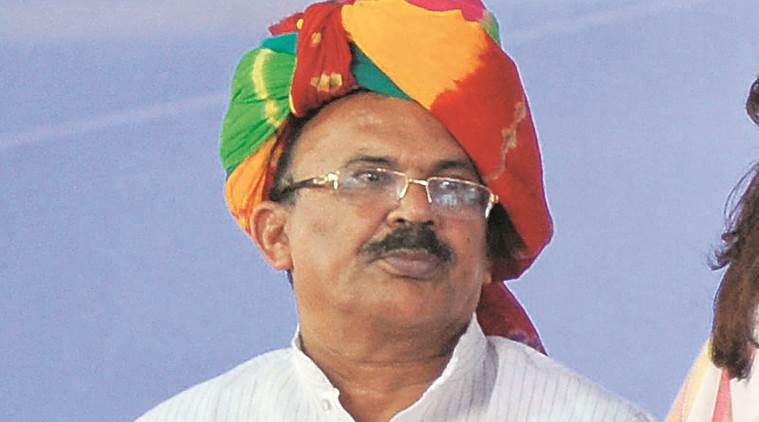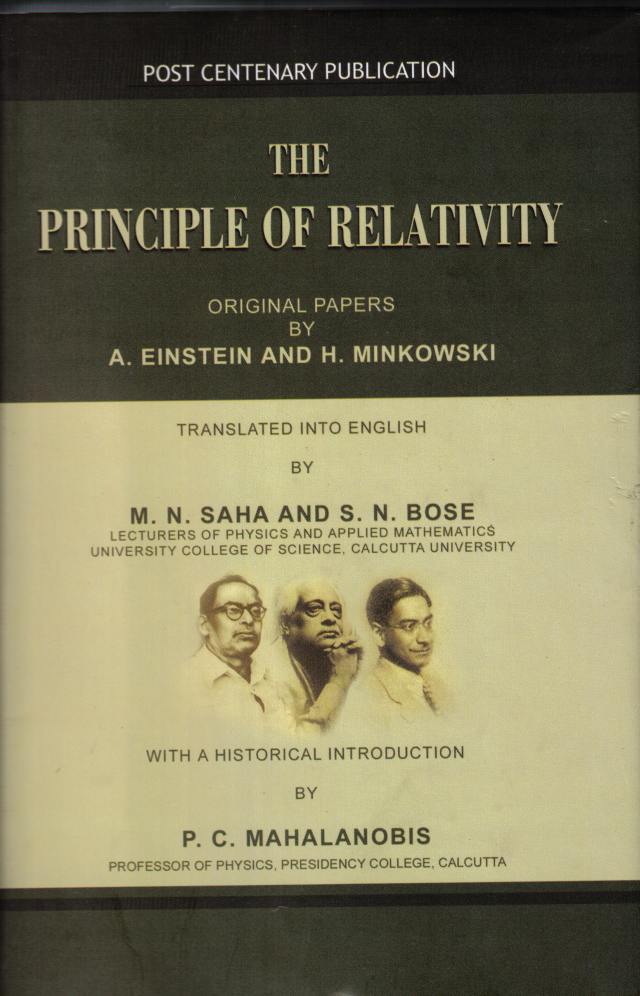
Make no mistake: the next big sci fi book coming out from India will come from members of the Bharatiya Janata Party (BJP). This statement, of course, will not bode well with the emerging market for new speculative fiction writers from India, but what can our lovely writers do when they are faced with such stiff opposition from the BJP?
Narendra Modi, the Prime Minister of our country, had already made excellent pitches that the publishing industry (already rattled because of injunctions coming their way, courtesy Baba Ramdev), has ignored. He had suggested that we already had pushpak vimans in India. How dare we read about the Wright brothers in school textbooks? This was, of course, followed by his next book of haiku, tentatively titled “Climate change/ my dear/ is in your head” (Please ignore the syllable count).
Taking cue from his life source, aka our Prime Minister, Vasudev Devani, the Rajasthan Education Minister has said that Newton did not discover gravitation, Brahmagupta did, 1000 years ago. I have two problems with this. Why do the BJP and the RSS only focus on round numbers? Brahmagupta II might well have discovered gravitation 1001 years ago. For my second reservation, consider this statement of his:
Abhi mai teen chaar din pehle padh raha tha, ki Newton ka… gurtwakarshan ka niyam kisne kiya? To bataya ki Newton ne kiya, maine bhi padha, aapne bhi padha. Gehrai me jayenge, to Brahmagupta Dwitiya ne usse ek hazar saal pehle is gurutwakarshan ka niyam diya tha (A few days ago, I was reading about Newton…who came up with the law of gravitation? Newton did, this is what I read, you read. If you delve deeper, Bramhagupta the second had given us this rule a thousand years before Newton).
Now, if you are the education minister who is 70 years of age, I would expect you to have read about Newton a little earlier in life, not two to three days before a programme celebrating 72 years of the foundation of Rajasthan University. This is not the first time, though, that the Rajasthan Minister has been inspired by the Prime Minister. Earlier, he had declared cow exhale oxygen. Quick question for you sir: when we fart, what gas is it that makes the smell pungent?
Needless to say, what is worrying is the fact that such statements are not made in private, and his wisdom is not confined to the members of his family. Students of a state university have to keep up with such nonsense. No wonder you are led to a sign that says “Page not Found” when you want visit the university’s website and wish to take an “Overview” of the university.
What would the view look like if, in a room full of students and teachers, such comments are made? Bleak, my friend, very bleak.
On a more serious note (please note that all the above points were also made very, very seriously), this makes a mockery of the struggle our unversities went through to give quality, affordable education to its citizens. If we dig up the history of colonial education, and the subsequent transition into post colonial educational institues, we will realise the immense investment in education in Jawaharlal Nehru’s vision of a modern India.
Our constitution says that developing a “scientific temper” is one of our fundamental duties. Not only that, this Brainpickings article gives an introductory look into the relationship between Rabindranath Tagore and Albert Einstein. The relationship between India’s tryst with modernity in general, and Einstein in particular, went far deeper. Two young professors at the University of Calcutta, Satyendra Nath Bose and Meghnad Saha, translated Einstein’s book on relativity from the original German, into English for the first time, anywhere in the world. Published by Calcutta University in 1920, it was titled The Principle of Relativity. Original Papers by A. Einstein and H. Minkowski, translated into English by M.N. Saha and S.N. Bose with a historical introduction by P.C. Mahalanobis.
As Bose’s grandson writes in his blog:
It is generally accepted, although not commonly known, that this publication was the first English translation from the original German of these famous papers — anywhere in the world. When I first learned this fact it struck me as remarkable that two young Lecturers of Physics and Applied Mathematics — Saha was 26 years old and Bose 25 — both entirely self-taught in physics, located in the far outskirts of the British Empire, a colonised people living under colonial rule, with very little access to the latest scientific publications coming out of Europe, were cognisant enough of the happenings in the world of science to embark on such a task in 1919-20.
Meanwhile, it is 2018 – almost a hundred years since Bose and Saha’s stupendous achievement, and more than 70 years since we gained independence from our colonial rulers.
If some good soul in heaven tells Newton of this history, he will probably throw an apple, either at Brahmagupta II, or at Vasudev Devani.





